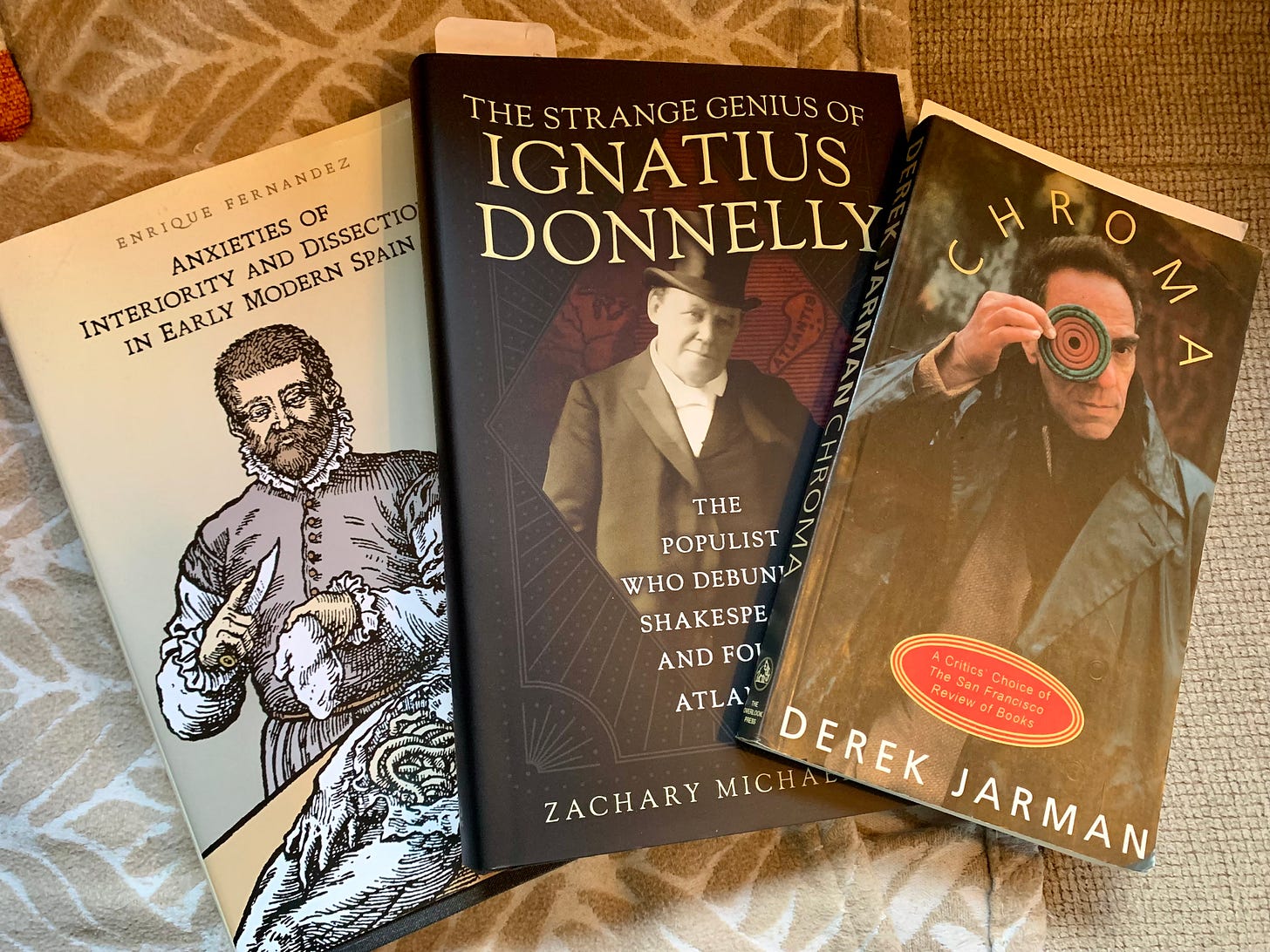Doing the work
Hi friends,
Recently I made a new writer friend, and we’ve decided to get together for monthly accountability check-ins. About a week ago, we sat down for our first one, and after we caught up for a while, she said, “So, how’s work going?”
The question stopped me in my tracks because when people ask me how work is going, they usually mean my day job. But I understood that for the first time someone was referring to my heart-and-soul work. To writing. It gave me a thrill.
Unless I’m on a deadline and getting paid for it, writing doesn’t often feel like work to me, which is partly because I love it and partly because I’ve internalized the idea that work equals paid labor. And of course paid labor tends to be valued and recognized more than unpaid labor (including taking care of children and other family members, cooking, cleaning, making art, etc.) So my first reaction was that my friend had elevated my writing by calling it work. And she had. I won’t lie—it felt good.
But I’ve also been thinking a lot about how writing—as well as all forms of unpaid labor—is indeed work. Even if we enjoy it most (or some) of the time, inevitably we encounter ups and downs, triumphs and challenges. There are many days when I sit down with my notebook or computer and it feels a lot more like work than fun. And if, like me, you’re with the half of the country that’s feeling anxiety, fear, anger, and sadness over the results of the election, then writing may be almost impossible to do right now.
On Thursday, I got to go to St. Bonaventure University to talk to students about writing, publishing, and queer literature, and their enthusiasm and hopefulness were a balm. They were full of great questions, including one that hit home, particularly at this moment: What do you do when you’re feeling stuck on a project? Even though I’ve addressed this here before, given current events, I thought it would be a good time to revisit it, so we can all share ideas about how to keep going.
Here are the ones I shared with the students:
Ask yourself what inspired the project. Nothing too specific like a character or plot point, but the big spark that led you to sit down and wade into this thing in the first place. Or, in other words, what the heck have you been trying to say? It could be one word or a whole page of notes, but it helps to reconnect with the initial inspiration.
Read, read, read. Habitually, I’ve gravitated toward books or stories that are similar to the one I’m writing in order to find inspiration or solve a problem. But for the past year, every morning before I write, I’ve been reading a few pages from something that 1) I wouldn’t ordinarily make time to read and 2) has nothing to do with what I’m working on. It’s been amazing to see how much inspiration is everywhere and how fruitful it is to make surprising connections. Similarly, you could watch a good movie or TV show.
Seek out portrait photography. An interesting photo of an intriguing subject shakes a lot of things loose inside me. In fact, a number of short stories I’ve written have come from portraits I’ve seen.
Get up and go for a walk. Some of my best ideas and solutions come when I’m away from my computer, looking at trees and moving my body. Plus a walk outside is good for you.
This one came from the professor whose class I was visiting. Get out into the world; surround yourself with people and life. There are stories and ideas everywhere. Plus it’s also probably good for you.
I recognize that a lot of us are feeling many things right now, and you might even be asking yourself: Why do the work at all? Ultimately, you need to decide what’s right for you. But I’d like to offer you the reminder that your voice is your power. People need art even in the worst of times—especially in the worst of times—to feel grounded and connected to our shared humanity. We need it to feed an unnameable part of ourselves. We need it for a place to put all the feelings. We need it to inspire us to action. We need it to be able to understand and empathize with one another.
So I hope you’ll keep writing. If not now, then when you’re ready.
Meanwhile, if you have your own tips for getting unstuck, please share them in the comments. I’m so grateful for all of you. And I thank you for being on this journey with me.
Yours,
Jen





